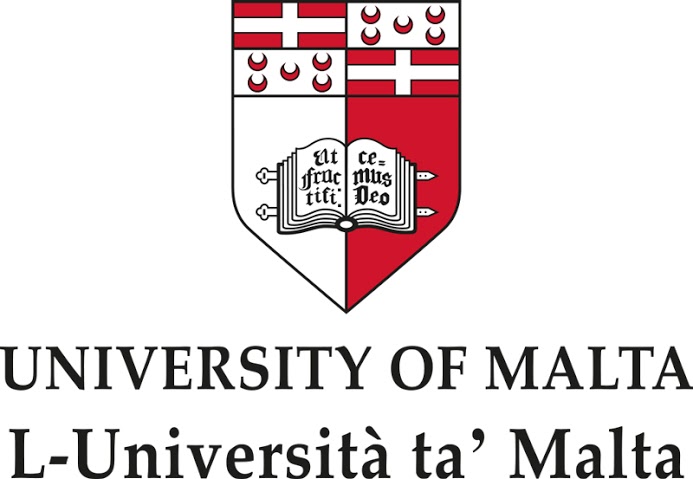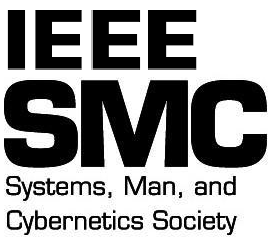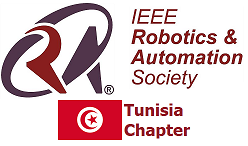April 6-8, 2016 - Saint Julian's, Malta
A System of Autonomous Vehicles: Modeling, Diagnostics, Prognostics, Localization, Navigation and Cloud-Based Control
Bio-Sketch

Mo M. Jamshidi (Fellow IEEE, Fellow ASME, A. Fellow-AIAA, Fellow AAAS, Fellow TWAS, Fellow NYAS) received BS in EE, Oregon State University, Corvallis, OR, USA in 1967, the MS and Ph.D. degrees in EE from the University of Illinois at Urbana-Champaign, IL, USA in June 1969 and February 1971, respectively. He holds honorary doctorate degrees from University of Waterloo, Canada, 2004 and Technical University of Crete, Greece, 2004. Currently, he is the Lutcher Brown Endowed Chaired Professor at the University of Texas, San Antonio, TX, USA. He has been an advisor to NASA (including 1st MARS Mission), USAF, USDOE and EC/EU (Brussels). He has over 730 technical publications including 68 books (11 text books), research volumes, and edited volumes in English and a few foreign languages. He is the Founding Editor or co-founding editor or Editor-in-Chief of 5 journals including IEEE Control Systems Magazine and the IEEE Systems Journal. He is an Honorary Professor at three Chinese Universities (Nanjing and Xi’an), Deakin University (Australia), Birmingham University and Loughbrough University (UK), and Obuda University (Hungary). In October 2005 he was awarded the IEEE’s Norbert Weiner Research Achievement Award. He is a member of the University of the Texas System Chancellor’s Council since 2011. He is currently involved in research on system of systems engineering with emphasis on cloud computing, robotics, UAVs, biological and sustainable energy systems. He has over 6600 citations on Scholar Google.
Network Based Control and Filtering in a Unified Framework
Bio-Sketch
 Huijun Gao received his Ph.D. degree in control science and engineering from Harbin Institute of Technology, China, in 2005. He was a Research Associate with the Department of Mechanical Engineering, The University of Hong Kong, from November 2003 to August 2004. From October 2005 to October 2007, he carried out his postdoctoral research with the Department of Electrical and Computer Engineering, University of Alberta, Canada. Since November 2004, he has been with Harbin Institute of Technology, where he is currently a Professor and director of the Research Institute of Intelligent Control and Systems.
Huijun Gao received his Ph.D. degree in control science and engineering from Harbin Institute of Technology, China, in 2005. He was a Research Associate with the Department of Mechanical Engineering, The University of Hong Kong, from November 2003 to August 2004. From October 2005 to October 2007, he carried out his postdoctoral research with the Department of Electrical and Computer Engineering, University of Alberta, Canada. Since November 2004, he has been with Harbin Institute of Technology, where he is currently a Professor and director of the Research Institute of Intelligent Control and Systems.
Prof. Gao’s research interests include network-based control, robust control/filtering theory and their engineering applications. He have (co-)authored 3 monographs, and published more than 300 papers in international journals and peer-reviewed conferences, among which, more than 100 papers are published in IEEE Transactions and Automatica. His scientific papers have been cited for more than 3000 and 10000 times according to Web of Science and Google Scholar, respectively.
He is an IEEE Fellow and received the IES David Irwin Early Career Award. He is Co-Editor-in-Chief of IEEE Transactions on Industrial Electronics and Associate Editor of Automatica, IEEE Transactions on Control Systems Technology, IEEE Transactions on Cybernetics, IEEE/ASME Transactions on Mechatronics etc. Prof. Gao is an IEEE Industrial Electronics Society (IES) Administration Committee (AdCom) member.
He is among the top 17 (15th position is shared by 3 people) listed in Thomson Reuters 2014, The World’s Most Influential Scientific Minds.
Risks-Forcast@People-in-Clouds: Big data based Clouds Healthcare and Risk Forecasting based on Subjective Intelligence
Bio-Sketch

Hamido Fujita is professor at Iwate Prefectural University (IPU), Iwate, Japan, as a director of Intelligent Software Systems. He is the Editor-in-Chief of Knowledge-Based Systems, Elsevier of impact factor (2.97) for 2014. He received Doctor Honoris Causa from O’buda University in 2013, and a title of Honorary Professor from O’buda University, Budapest, Hungary in 2011. He received Honorary scholar from University of Technology Sydney, Australia on 2012. He is Adjunct professor to Stockholm University, Sweden, University of Technology Sydney, National Taiwan Ocean University and others. He has supervised PhD students jointly with University of Laval, Quebec, Canada; University of Technology, Sydney, Australia; Oregon State University (Corvallis), University of Paris 1 Pantheon-Sorbonne, France and University of Genoa, Italy. He has four international Patents in Software System and Several research projects with Japanese industry and partners. He is vice president of International Society of Applied Intelligence. He has given many keynotes in many prestigious international conferences on intelligent system and subjective intelligence. He headed a number of projects including Intelligent HCI, a project related to Mental Cloning as an intelligent user interface between human user and computers and SCOPE project on Virtual Doctor Systems for medical applications.
Real machine scheduling problems with metaheuristics
Bio-Sketch

Rubén Ruiz is Full Professor of Statistics and Operations Research at the Polytechnic University of Valencia, Spain. He is co-author of more than 60 papers in International Journals and has participated in presentations of more than a hundred papers in national and international conferences. He is editor of the Elsevier’s journal Operations Research Perspectives (ORP) and co-editor of the JCR-listed journal European Journal of Industrial Engineering (EJIE). He is also associate editor of other important journals like TOP or Applied Mathematics and Computation as well as member of the editorial boards of several journals most notably European Journal of Operational Research and Computers and Operations Research. He is the director of the Applied Optimization Systems Group (SOA, http://soa.iti.es) at the Instituto Tecnológico de Informática (ITI, http://www.iti.es) where he his or has been principal investigator of several public research projects as well as privately funded projects with industrial companies. His research interests include scheduling and routing in real life scenarios.
Agility issues in supply chain management
Bio-Sketch
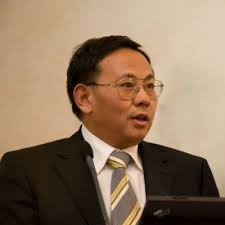
Games: AI's Long-Standing Friend and (Final) Frontier.
Bio-Sketch
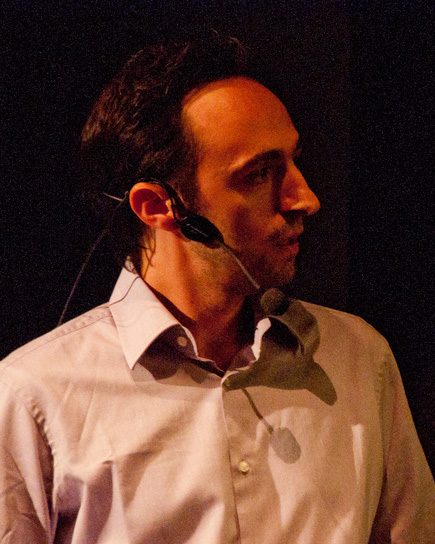 Georgios N. Yannakakis (http://yannakakis.net/) is the Director of the Institute of Digital Games, University of Malta (UoM). He received the PhD degree in Informatics from the University of Edinburgh in 2005. Prior to joining the Institute of Digital Games, UoM, in 2012 he was an Associate Professor at the Center for Computer Games Research at the IT University of Copenhagen. He does research at the crossroads of artificial intelligence, computational creativity, affective computing, advanced game technology, and human-computer interaction. He pursues research concepts such as user experience modeling and procedural content generation for the design of personalized interactive systems for entertainment, education, training and health. He has published over 180 journal and conference papers in the aforementioned fields and his work has been cited broadly. His research has been supported by numerous national and European grants and has appeared in Science Magazine and New Scientist among other venues. He is an Associate Editor of the IEEE Transactions on Affective Computing and the IEEE Transactions on Computational Intelligence and AI in Games. He has been the General Chair of key conferences in the area of game artificial intelligence (IEEE CIG 2010) and games research (FDG 2013). He is a Senior Member of IEEE.
Georgios N. Yannakakis (http://yannakakis.net/) is the Director of the Institute of Digital Games, University of Malta (UoM). He received the PhD degree in Informatics from the University of Edinburgh in 2005. Prior to joining the Institute of Digital Games, UoM, in 2012 he was an Associate Professor at the Center for Computer Games Research at the IT University of Copenhagen. He does research at the crossroads of artificial intelligence, computational creativity, affective computing, advanced game technology, and human-computer interaction. He pursues research concepts such as user experience modeling and procedural content generation for the design of personalized interactive systems for entertainment, education, training and health. He has published over 180 journal and conference papers in the aforementioned fields and his work has been cited broadly. His research has been supported by numerous national and European grants and has appeared in Science Magazine and New Scientist among other venues. He is an Associate Editor of the IEEE Transactions on Affective Computing and the IEEE Transactions on Computational Intelligence and AI in Games. He has been the General Chair of key conferences in the area of game artificial intelligence (IEEE CIG 2010) and games research (FDG 2013). He is a Senior Member of IEEE.Facial Animation and Speech Synchronization in MPEG-4
Bio-Sketch
 Abdennour El Rhalibi is Professor of Entertainment Computing and Head of Strategic Projects at Liverpool John Moores University. He is Head of Computer Games Research Lab at the Protect Research Centre. He has over 22 years' experience doing research and teaching in Computer Sciences. Abdennour has worked as lead researcher in three EU projects in France and in UK. His current research involves Game Technologies and Applied Artificial intelligence. Abdennour has been leading for six years several projects in Entertainment Computing funded by the BBC and UK based games companies, involving cross-platform development tools for games, 3D Web-Based Game Middleware Development, State Synchronisation in Multiplayer Online Games, Peer-to-Peer MMOG and 3D Character Animation. Abdennour has published over 160 publications in these areas. Abdennour serves in many journal editorial boards including ACM Computer in Entertainment and the International Journal of Computer Games Technologies. He has served as chair and IPC member in over 100 conferences on Computer Entertainment, AI and VR. Abdennour is member of many International Research Committees in AI and Entertainment Computing, including IEEE MMTC IG: 3D Rendering, Processing and Communications (3DRPCIG), IEEE Task Force on Computational Intelligence in Video Games and IFIP WG 14.4 Games and Entertainment Computing.
Abdennour El Rhalibi is Professor of Entertainment Computing and Head of Strategic Projects at Liverpool John Moores University. He is Head of Computer Games Research Lab at the Protect Research Centre. He has over 22 years' experience doing research and teaching in Computer Sciences. Abdennour has worked as lead researcher in three EU projects in France and in UK. His current research involves Game Technologies and Applied Artificial intelligence. Abdennour has been leading for six years several projects in Entertainment Computing funded by the BBC and UK based games companies, involving cross-platform development tools for games, 3D Web-Based Game Middleware Development, State Synchronisation in Multiplayer Online Games, Peer-to-Peer MMOG and 3D Character Animation. Abdennour has published over 160 publications in these areas. Abdennour serves in many journal editorial boards including ACM Computer in Entertainment and the International Journal of Computer Games Technologies. He has served as chair and IPC member in over 100 conferences on Computer Entertainment, AI and VR. Abdennour is member of many International Research Committees in AI and Entertainment Computing, including IEEE MMTC IG: 3D Rendering, Processing and Communications (3DRPCIG), IEEE Task Force on Computational Intelligence in Video Games and IFIP WG 14.4 Games and Entertainment Computing. Event-Triggered Control for Output Consensus of Heterogeneous Linear Multi-Agent Systems
Bio-Sketch
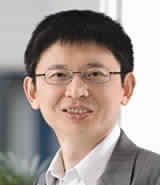 Gang Feng received the B.Eng and M.Eng. Degrees in Automatic Control from Nanjing Aeronautical Institute, China in 1982 and in 1984 respectively, and the Ph.D. degree in Electrical Engineering from the University of Melbourne, Australia in 1992. Professor Feng was a Lecturer in Royal Melbourne Institute of Technology, 1991 and a Senior Lecturer/Lecturer, University of New South Wales, 1992-1999. He has been with City University of Hong Kong since 2000 where he is now a Chair Professor of Mechatronic Engineering. He was also a ChangJiang Chair Professor at Nanjing University of Science and Technology, awarded by Ministry of Education. He has received Alexander von Humboldt Fellowship, the IEEE Transactions on Fuzzy Systems Outstanding Paper Award, the Best Paper Award of IEEE International Conference on Neural Networks and Signal Processing and the Best Theoretical Paper Award in the Second World Congress on Intelligent Control and Automation. He is an author of one research monograph entitled “Analysis and Synthesis of Fuzzy Control Systems: A Model Based Approach”, and over 200 SCI indexed papers including over 100 in IEEE Transactions. His research interests include intelligent systems and control, networked control systems, and multi-agent systems and control.Professor Feng is a fellow of IEEE. He has been an Associate Editor of IEEE Trans. Automatic Control, IEEE Trans. on Fuzzy Systems, Mechatronics, IEEE Trans. Systems, Man, & Cybernetics, Journal of Systems Science and Complexity, and Journal of Control Theory and Applications.
Gang Feng received the B.Eng and M.Eng. Degrees in Automatic Control from Nanjing Aeronautical Institute, China in 1982 and in 1984 respectively, and the Ph.D. degree in Electrical Engineering from the University of Melbourne, Australia in 1992. Professor Feng was a Lecturer in Royal Melbourne Institute of Technology, 1991 and a Senior Lecturer/Lecturer, University of New South Wales, 1992-1999. He has been with City University of Hong Kong since 2000 where he is now a Chair Professor of Mechatronic Engineering. He was also a ChangJiang Chair Professor at Nanjing University of Science and Technology, awarded by Ministry of Education. He has received Alexander von Humboldt Fellowship, the IEEE Transactions on Fuzzy Systems Outstanding Paper Award, the Best Paper Award of IEEE International Conference on Neural Networks and Signal Processing and the Best Theoretical Paper Award in the Second World Congress on Intelligent Control and Automation. He is an author of one research monograph entitled “Analysis and Synthesis of Fuzzy Control Systems: A Model Based Approach”, and over 200 SCI indexed papers including over 100 in IEEE Transactions. His research interests include intelligent systems and control, networked control systems, and multi-agent systems and control.Professor Feng is a fellow of IEEE. He has been an Associate Editor of IEEE Trans. Automatic Control, IEEE Trans. on Fuzzy Systems, Mechatronics, IEEE Trans. Systems, Man, & Cybernetics, Journal of Systems Science and Complexity, and Journal of Control Theory and Applications.






